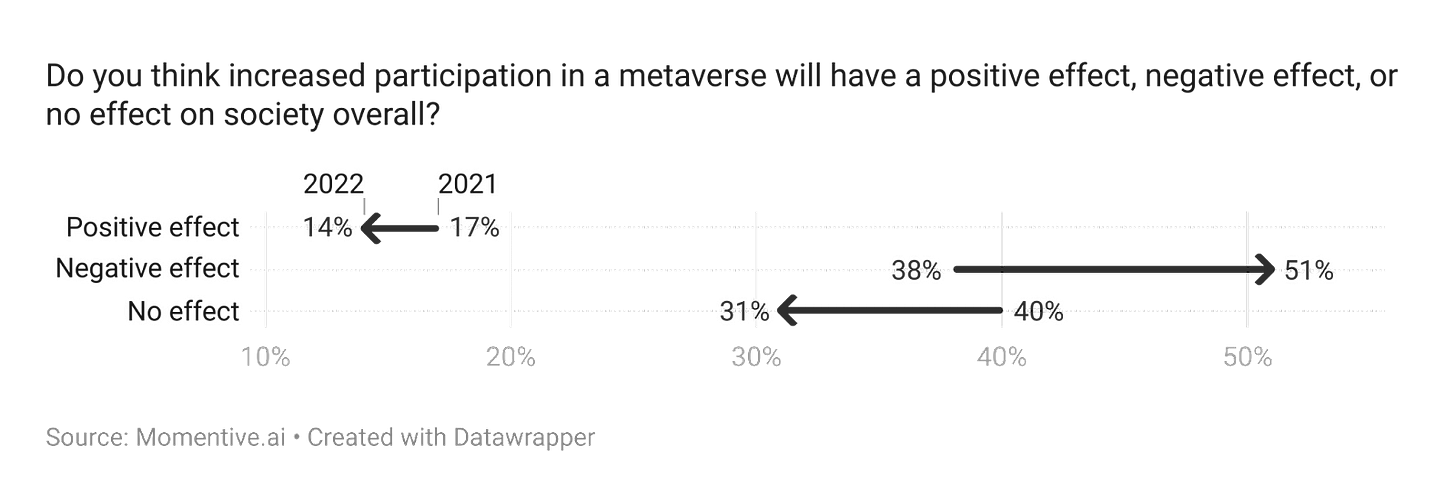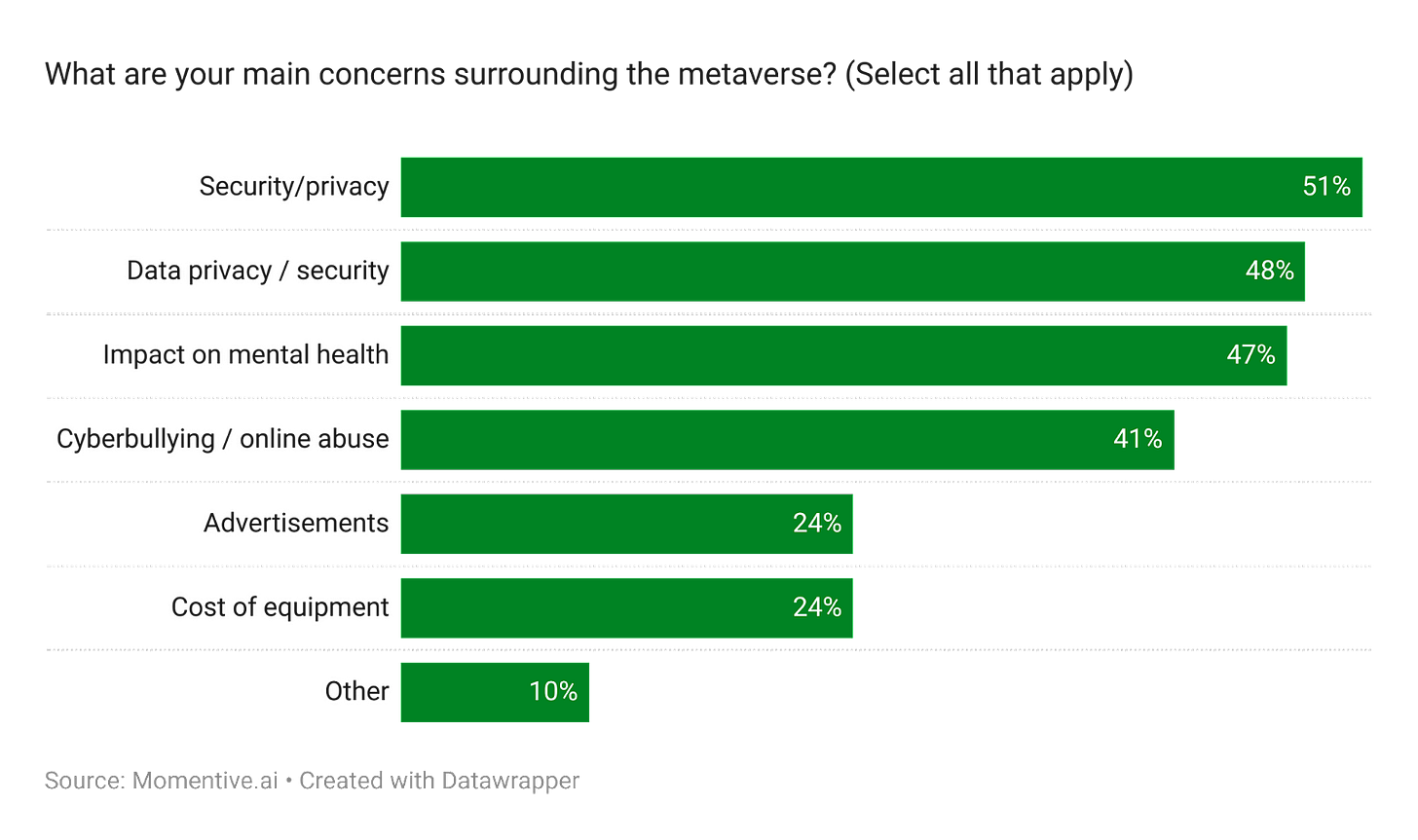Metaverse deep dive
Hello from SurveyMonkey!
In this week’s newsletter, Sam is back with an exclusive deep dive on how Americans are feeling about the metaverse. But first, as always, here’s a quick recap of our data in the news and on our blog:
Demand for telehealth softens: despite an uptick in telehealth visits during the COVID-19 pandemic, most Americans still look to in-person healthcare as just 37% have attended a telehealth visit in the past 12 months. Read the full story.
IT decision makers face economic uncertainty: a new Momentive poll shows that 4 in 5 IT decision makers expect hiring freezes, outsourcing, and software downgrades to occur due to economic headwinds. Check out the blog post here.
Get ready for TV’s biggest night: Find out who the public thinks will be the winners of this year’s Emmys awards, or use our survey templates to start planning the ultimate watch party.
Consumer awareness of the metaverse grows year over year, but enthusiasm for the concept remains low
The metaverse, a term used to describe an online virtual reality space where users can participate in certain activities, such as shopping, playing games, and socializing, continues to rise in familiarity. Currently, 2 in 5 (40%) U.S. adults are familiar with the concept of the metaverse, doubling from the previous year (20%).
Despite increasing public awareness, demand for the technology has seen little movement: only 1 in 4 (25%) Americans expressed interest in participating in a metaverse, on par from last year (26%).
Demand among younger consumers (18-34), who typically show greater enthusiasm for newer technologies, has receded year over year; 33% of consumers aged 18-34 say they are interested in participating in a metaverse, down from 40% 2021.
Facebook’s pivot to the metaverse falls flat with with consumers
One year later, Facebook’s rebranding to Meta still fails to resonate with consumers: 1 in 4 (25%) of U.S. adults support the decision, with only 4% strongly approving and 21% somewhat approving. Similarly, the public is skeptical over the social media platform’s role in shaping the metaverse: only 1 in 3 (33%) agree that Meta is the future of the metaverse, despite the company’s massive investment in the technology.
Concerns mount over metaverse’s impact on privacy, mental health, and online safety
Skepticism over the metaverse’s impact on society is growing, with more than three times as many U.S. adults saying increased participation in a metaverse will have a negative impact on society than a positive impact (51% vs. 14%), with the share of those with negative perceptions of the technology also growing year over year (from 38% to 51%). Only 14% say they believe the metaverse will have a positive impact on society, compared with 17% in 2021.
Security, data privacy, and concerns surrounding the metaverse’s impact on mental health are among the chief worries when it comes to the technology, with cyberbullying trailing closely. Women are especially concerned when it comes to cyberbullying or online abuse (45% vs 35%).
Younger consumers also show interest in a variety of use cases beyond gaming, including work, therapy, and socializing with others.
Playing games and attending class leads all other activities in interest in participation within a virtual reality (VR) environment, but most other categories also see demand, including watching movies (26%), socializing (24%), working (24%), shopping (22%), and attending therapy (21%). Younger consumers (age 18-34) express the greatest interest in any type of activity, especially gaming (44%).
That’s all for this week! Thanks as always for reading.





